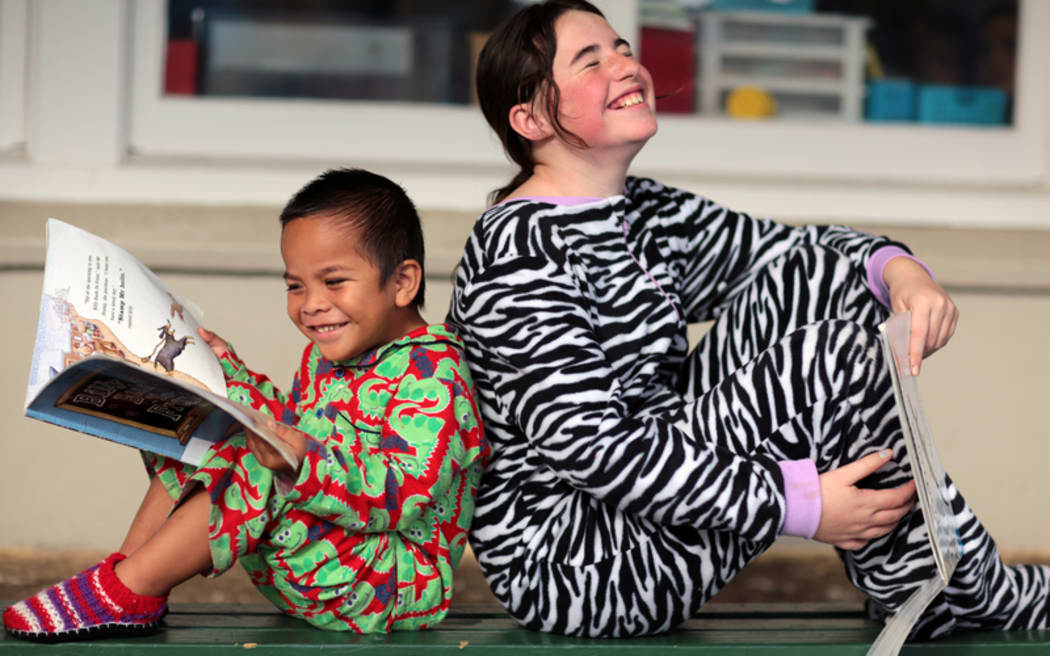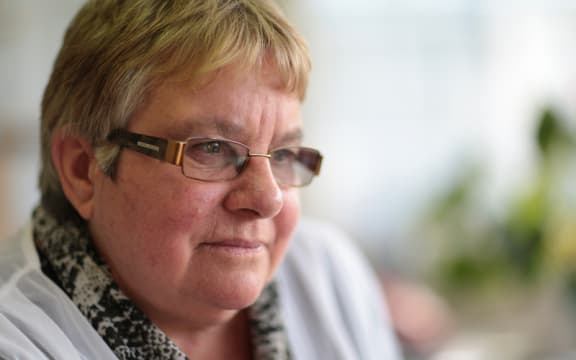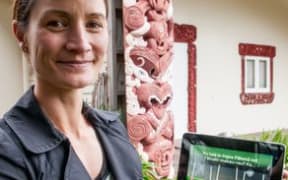Some children are starting school with such little oral language they don't even understand their own name when spoken to, a literacy group says.

Glen Eden Primary School students Omega Diranga (Year 1) and Josie Cunningham (Year 5) enjoying their books. Photo: RNZ / Diego Opatowski
Glen Eden Primary School principal Linda Mayow said a growing number of children were turning up aged five without basic skills.
"The numeracy project starts with a stage zero, and I say to the teachers, 'They can't come on stage zero' - because that's about knowing the names of the colours, being able to count up to five ... and we do have children who come in here who can't do those things."
Spoken language was the basis of everything children learned, she said.

Linda Mayow, Principal of Glen Eden Primary School Photo: RNZ / Diego Opatowski
"If they don't come into school with a really good foundation in oral language, then they can't do the writing, they can't do the reading."
Auckland Council funded education group COMET Auckland is trying to bring together early childhood centres, schools, Plunket and other health and education groups, to get the message across that talking matters.
COMET strategic analyst Alison Sutton said some children were already years behind when they started school.
"They don't recognise their own name when said by somebody else, they don't know letters and numbers, they have a limited vocabulary," she said.
"They only make short two or three-word utterances - whereas three, four, and five-year-olds are perfectly capable of speaking in complex sentences."
Research carried out by the group in 2013 found children from low-income families started school knowing 3000 words on average - just half the average vocabulary of children from middle or high-income families.
But even children from well-off families could struggle, Ms Sutton said, if they were not read to, sung to, or even talked to enough.
"If nobody's talking to them because they're watching a lot of TV, or because in [early childhood education] they're only playing with children of their own age ... and there's not much adult interaction.
"If they don't have any extended family speaking to them, if they're not speaking in English, if the parents think that speaking English is best even if the parents don't have strong English language - that's an issue. So it's complex."
It was not just a problem for schools and early learning centres, because oral language developed well before then, she said.
Families needed a consistent message from health, social and education services, Dr Sutton said.
"Talk, talk, talk. Sing, sing, sing. Nursery rhymes... Whatever the language games are that you play with your children - do more of it."


